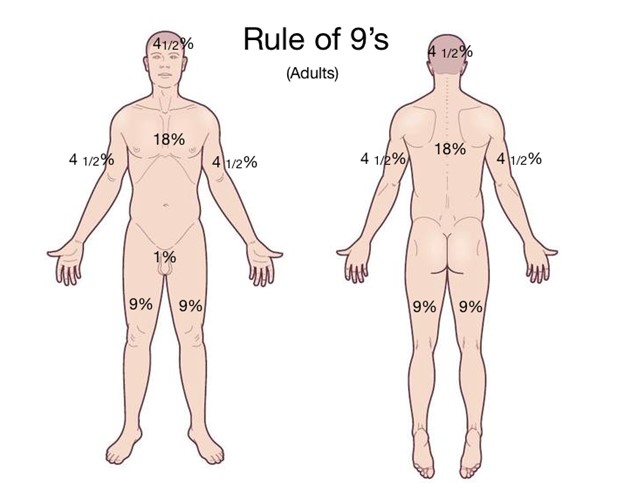A nurse is reviewing the medical record of a client who is experiencing delirium. Which of the following in the health record should the nurse identify as a cause of this disorder?
Seasonal allergies
History of GERD
Benzodiazepines
Completed antibiotics 10 days ago
The Correct Answer is C
Choice A Reason: Seasonal allergies are not a cause of delirium, but a common condition that affects the respiratory system and causes symptoms such as sneezing, runny nose, itchy eyes, or coughing.
Choice B Reason: History of GERD is not a cause of delirium, but a chronic condition that affects the digestive system and causes symptoms such as heartburn, regurgitation, chest pain, or difficulty swallowing.
Choice C Reason: Benzodiazepines are a cause of delirium, especially in older adults or those with cognitive impairment. Benzodiazepines are a class of drugs that act on the central nervous system and cause sedation, relaxation, and reduced anxiety. However, they can also impair memory, attention, orientation, and judgment, and lead to confusion, agitation, hallucinations, or delusions.
Choice D Reason: Completed antibiotics 10 days ago are not a cause of delirium, but a treatment for bacterial infections. Antibiotics can have side effects such as nausea, diarrhea, rash, or allergic reactions, but they do not cause delirium unless they are toxic or interact with other medications.
Nursing Test Bank
Naxlex Comprehensive Predictor Exams
Related Questions
Correct Answer is B
Explanation
Choice A Reason: Hemorrhage is not a complication of an acute spinal cord injury, but rather a possible cause of it. Hemorrhage can occur due to trauma or rupture of blood vessels in or around the spinal cord, leading to compression and damage of the nerve tissue.
Choice B Reason: This is the correct choice. Spinal shock is a complication of an acute spinal cord injury that occurs within minutes to hours after the injury. It is characterized by loss of sensation, motor function, reflexes, and autonomic function below the level of injury. It is caused by transient disruption of nerve conduction and synaptic transmission in the spinal cord.
Choice C Reason: Apoptosis is not a complication of an acute spinal cord injury, but rather a cellular process that occurs after it. Apoptosis is programmed cell death that occurs in response to injury or stress. It can lead to further loss of neurons and glial cells in the spinal cord over time.
Choice D Reason: Neurogenic shock is a complication of an acute spinal cord injury that occurs within hours to days after the injury. It is characterized by hypotension, bradycardia, and peripheral vasodilation due to loss of sympathetic tone and unopposed parasympathetic activity. It is caused by disruption of autonomic pathways in the spinal cord.
Correct Answer is A
Explanation
Choice A Reason: This is the correct choice. Using the rule of nines, each arm accounts for 9 percent of TBSA, each leg accounts for 18 percent of TBSA, and front and back are equally divided. Therefore, burns on both sides of both arms and legs equal to (9 + 9) x 2 + (18 + 18) x 2 = 36 percent of TBSA.
Choice B Reason: This choice is incorrect. Using the rule of nines, burns on both sides of both arms and legs equal to 36 percent of TBSA, not 54 percent. To get 54 percent of TBSA, one would have to add burns on both sides of head and neck (9 percent), chest (9 percent), and abdomen (9 percent).
Choice C Reason: This choice is incorrect. Using the rule of nines, burns on both sides of both arms and legs equal to 36 percent of TBSA, not 27 percent. To get 27 percent of TBSA, one would have to subtract burns on both sides of one leg (18 percent).
Choice D Reason: This choice is incorrect. Using the rule of nines, burns on both sides of both arms and legs equal to 36 percent of TBSA, not 18 percent. To get 18 percent of TBSA, one would have to divide burns on both sides of both arms and legs by two.
Choice E Reason: This choice is incorrect. Using the rule of nines, burns on both sides of both arms and legs equal to 36 percent of TBSA, not 9 percent. To get 9 percent of TBSA, one would have to divide burns on both sides of both arms and legs by four.

Whether you are a student looking to ace your exams or a practicing nurse seeking to enhance your expertise , our nursing education contents will empower you with the confidence and competence to make a difference in the lives of patients and become a respected leader in the healthcare field.
Visit Naxlex, invest in your future and unlock endless possibilities with our unparalleled nursing education contents today
Report Wrong Answer on the Current Question
Do you disagree with the answer? If yes, what is your expected answer? Explain.
Kindly be descriptive with the issue you are facing.
